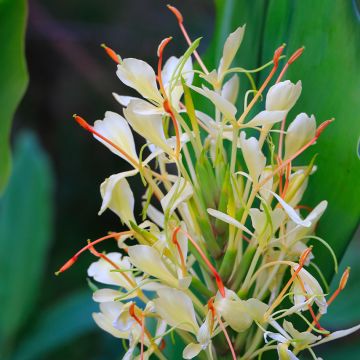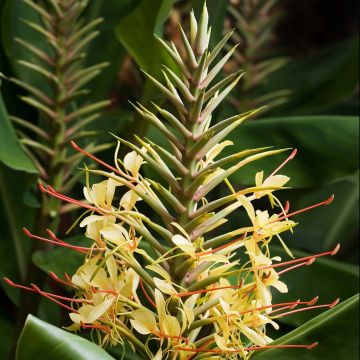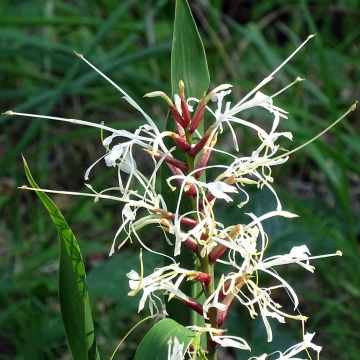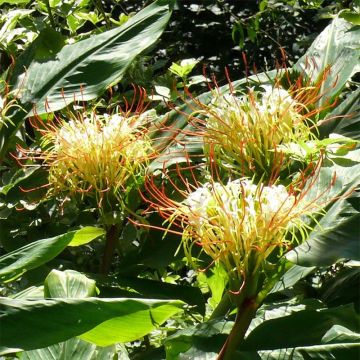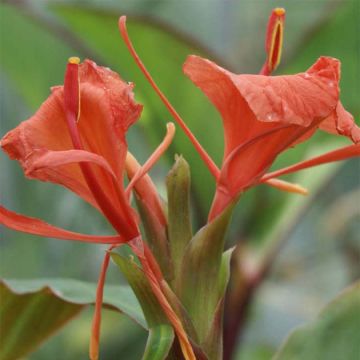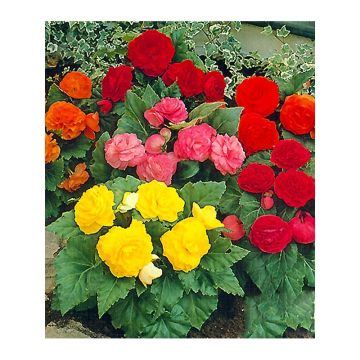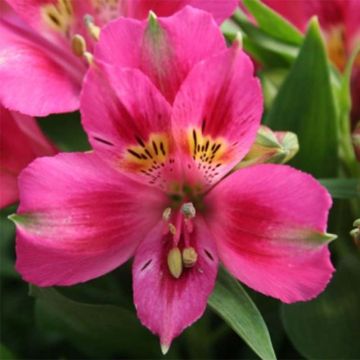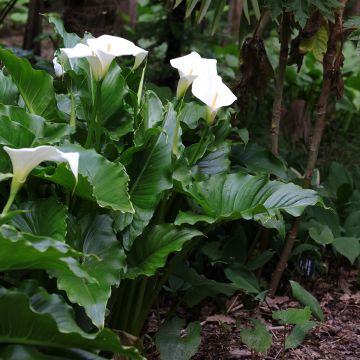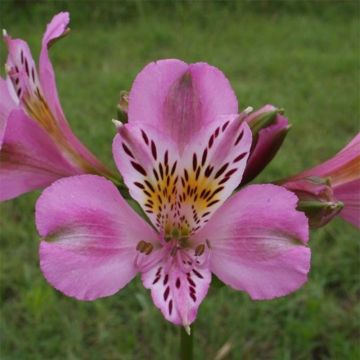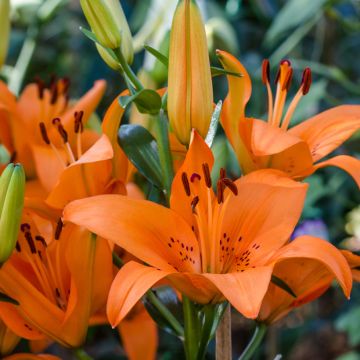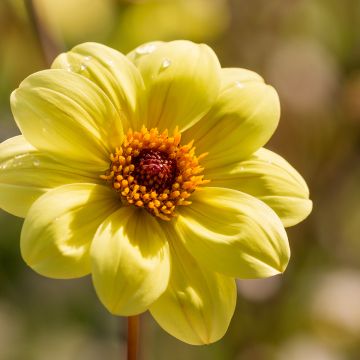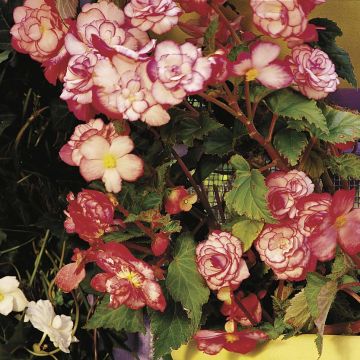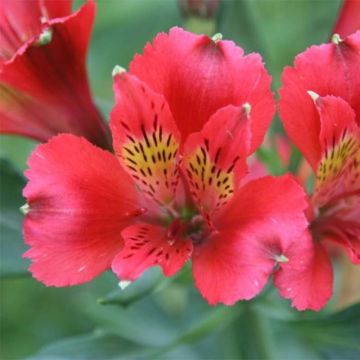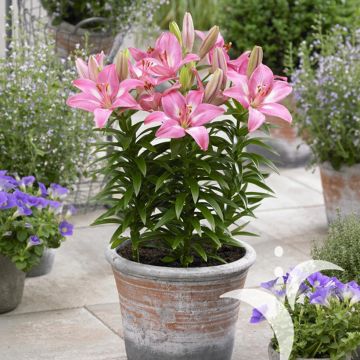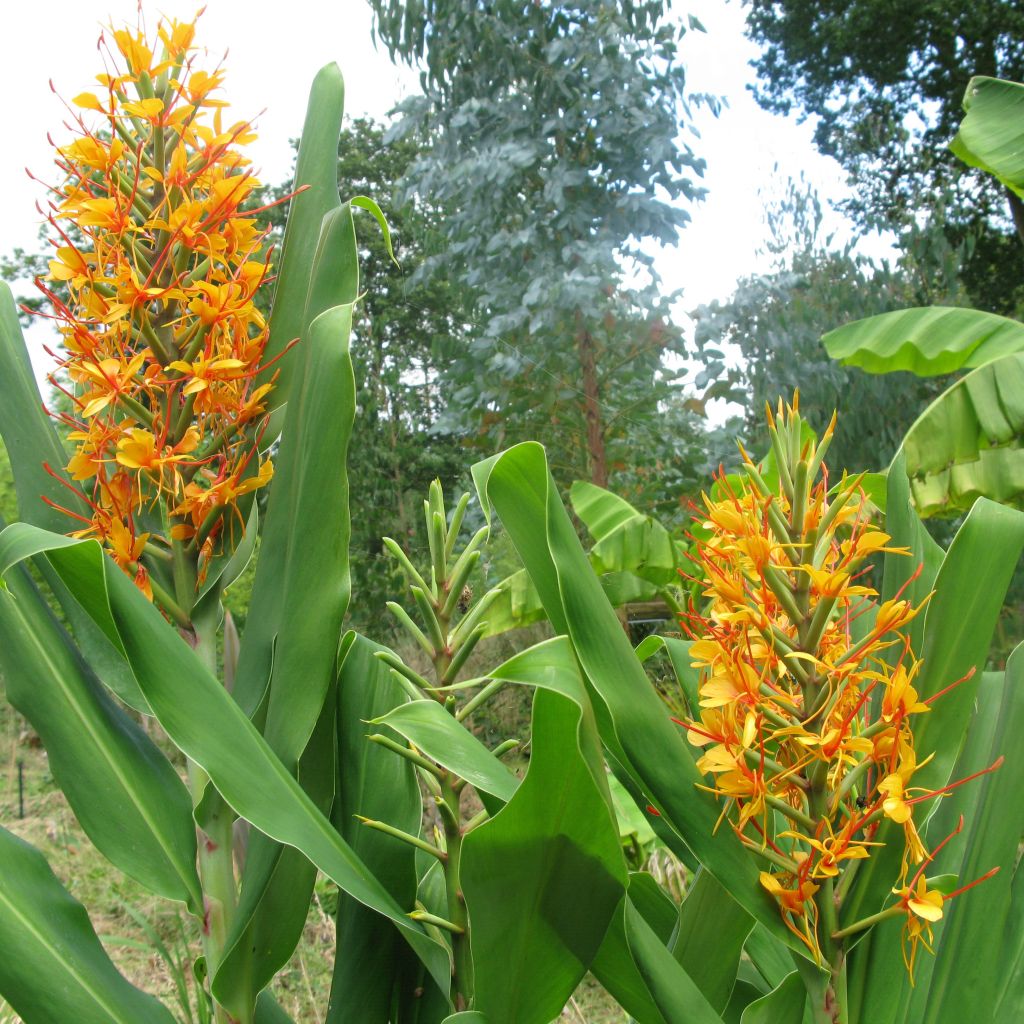

Hedychium coccineum Tara - Ginger Lily
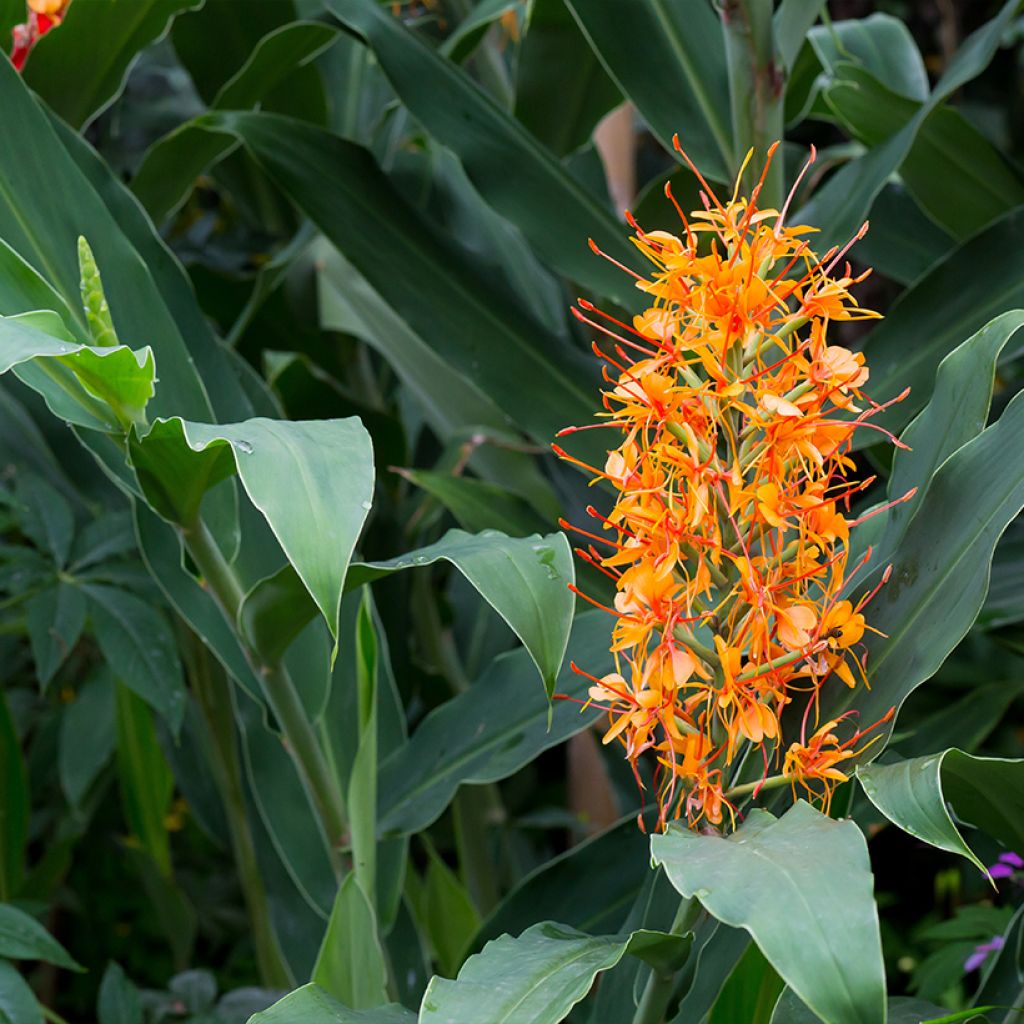

Hedychium coccineum Tara - Ginger Lily
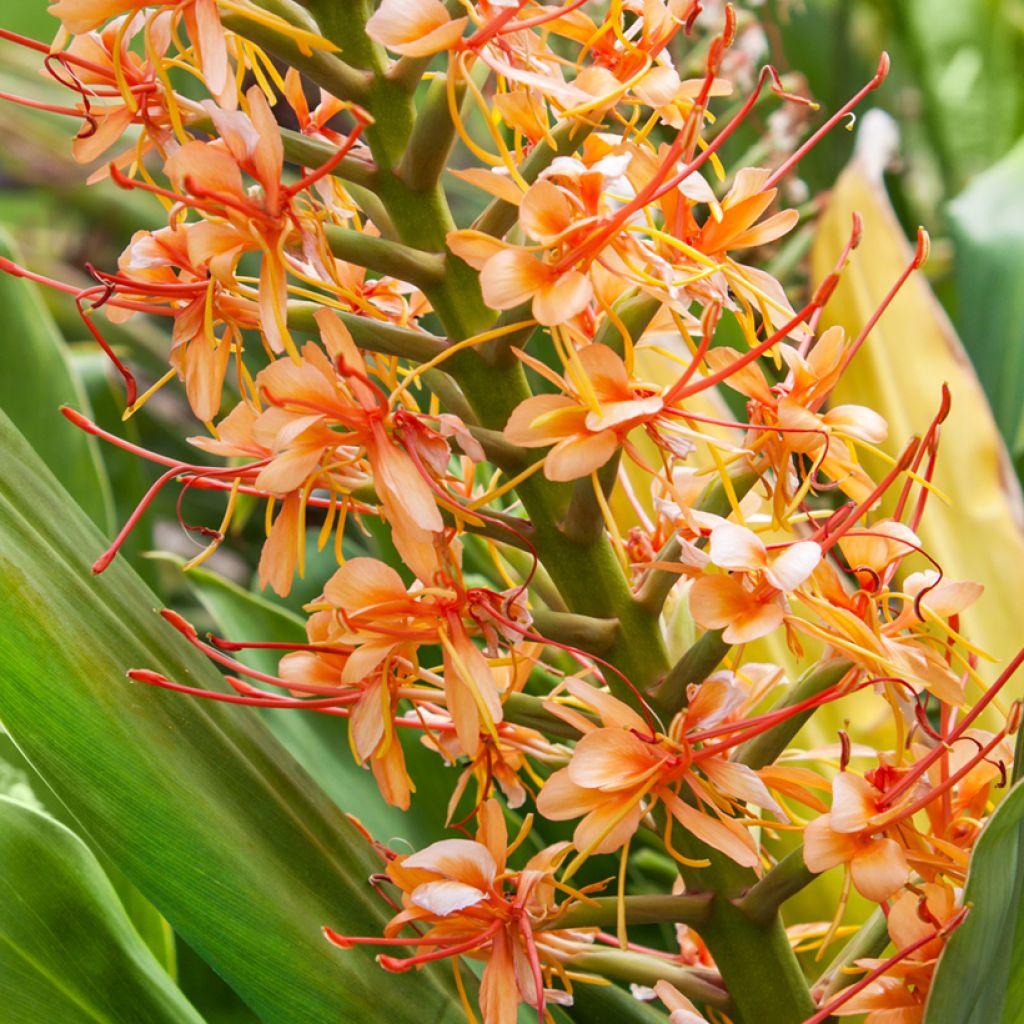

Hedychium coccineum Tara - Ginger Lily
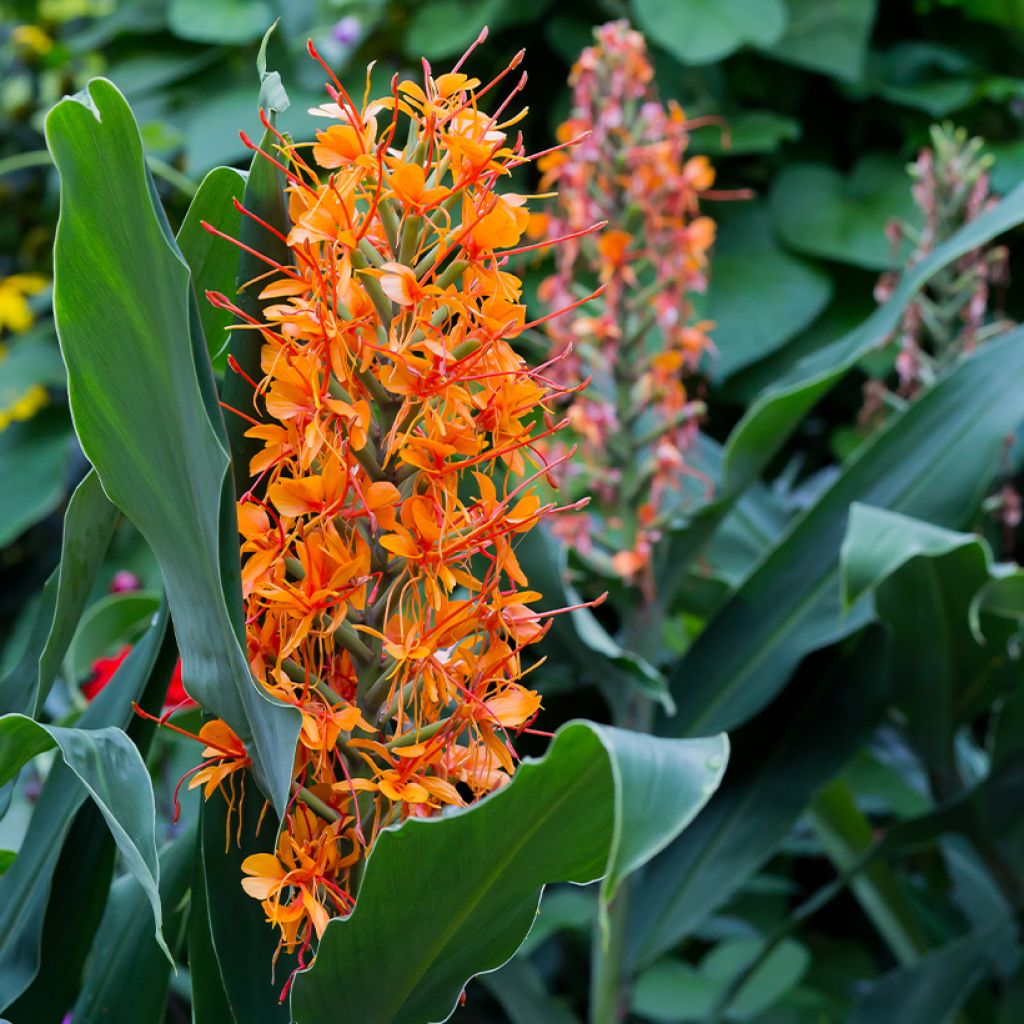

Hedychium coccineum Tara - Ginger Lily
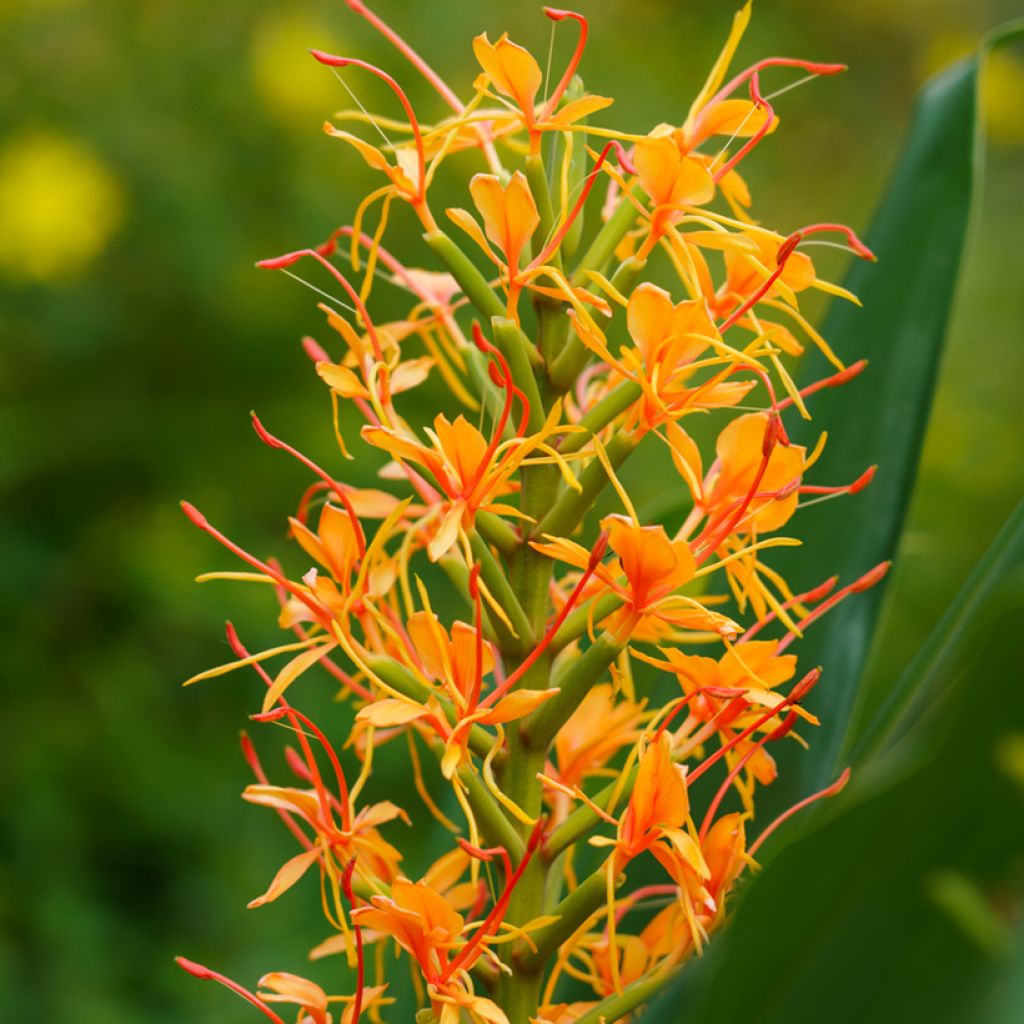

Hedychium coccineum Tara - Ginger Lily
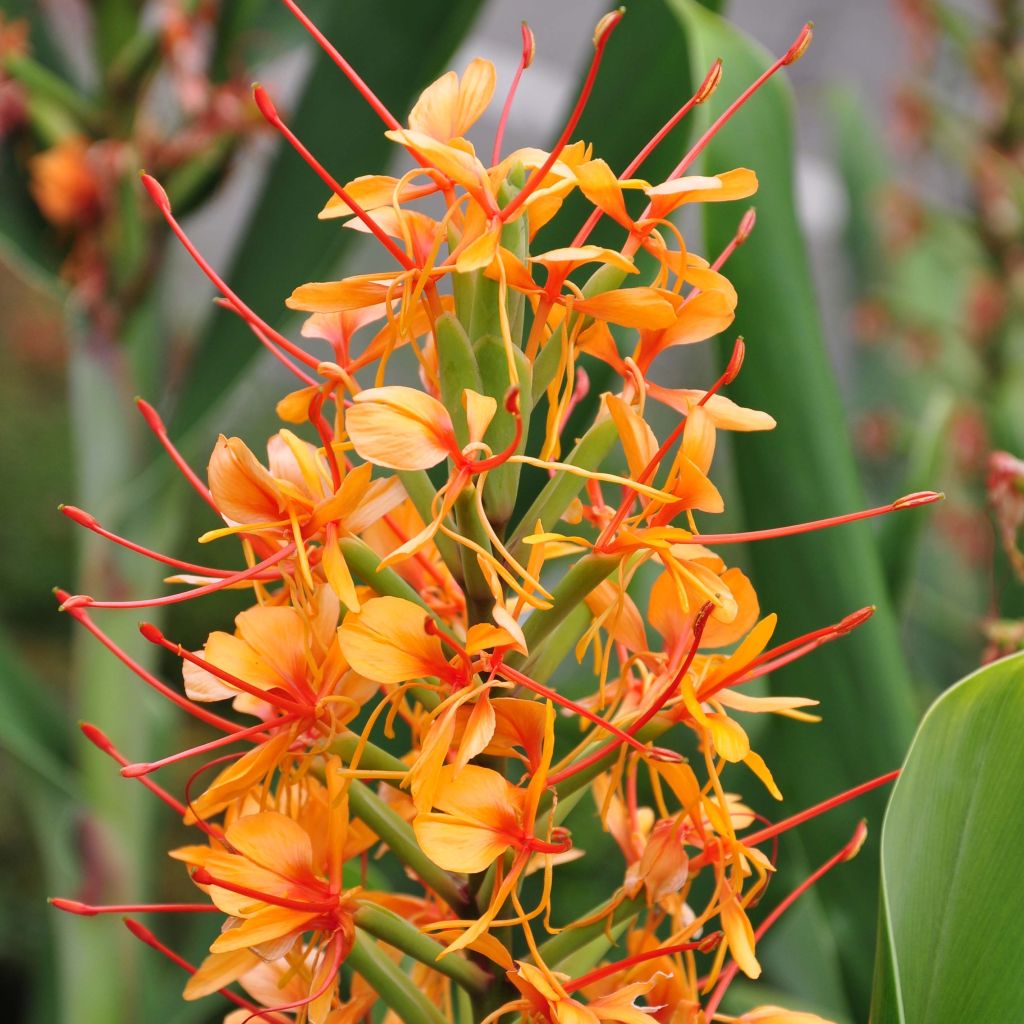

Hedychium coccineum Tara - Ginger Lily
Hedychium coccineum Tara - Ginger Lily
Hedychium coccineum Tara
Scarlet Ginger Lily, Orange Bottlebrush Ginger
This item cannot be shipped to the selected country
Delivery charge from €5.90
More information
Schedule delivery date,
and select date in basket
This plant carries a 6 months recovery warranty
More information
We guarantee the quality of our plants for a full growing cycle, and will replace at our expense any plant that fails to recover under normal climatic and planting conditions.
From €5.90 for pickup delivery and €6.90 for home delivery
Express home delivery from €8.90.

Does this plant fit my garden?
Set up your Plantfit profile →
Description
The Hedychium coccineum 'Tara', also known as Red Ginger Lily, is a very beautiful perennial plant with a strong exotic appearance but much hardier than the cannas that are often preferred. This ornamental ginger forms strong, slender yet flexible stems, adorned with long, glossy green leaves, and produces large, pendulous spikes of butterfly-like flowers in late summer, in a yellow-orange colour. A centrepiece in a tropical-inspired flower bed, even in northern continental Europe!
Hedychium coccineum is a rhizomatous plant native to mountainous areas of Southern China (Guangxi, Tibet, Yunnan), the Himalayas, India, and Indochina. It grows on forest edges and in high-altitude meadows, preferring open spaces rather than the depth of the undergrowth. The 'Tara' cultivar is a particularly hardy horticultural selection, bearing numerous bright orange flowers. 'Tara' will eventually form an imposing clump, 70 to 90 cm (28 to 35in) wide, composed of leafy stems that can reach up to 1.20 m (4ft) in height. Flowering occurs in late August in mild climates, and in September elsewhere. The inflorescence, which can measure up to 30 cm (12in), is composed of numerous small light orange flowers, somewhat resembling those of gauras with their compound structure of small petals surrounding prominent, 7 cm (3in) long stamens. They attract many bees. The leaves, arranged oppositely, are long and narrow, a light and glossy green, and somewhat resemble a fishbone. The plant disappears in autumn but regrows from the stump in spring.
These superb perennial plants, which we use abundantly in our exotic garden, thrive in rich and deep soil, never lacking water during the growing season, and in a warm exposure, as the flowers, all more or less fragrant, bloom late in our garden. In warmer regions, they are likely to appear as early as August. In the garden, one can create a tropically inspired flower bed by associating, for example, Hedychium 'Tara' with a Chinese palm tree, a Japanese banana tree, against a backdrop of giant cannas. In mild climates, the 'Tara' ornamental ginger will accompany the flowering of abutilons, cassia, lantana, brugmansia, or even the lesser-known Iochroma cyaneum.
Report an error about the product description
Hedychium coccineum Tara - Ginger Lily in pictures
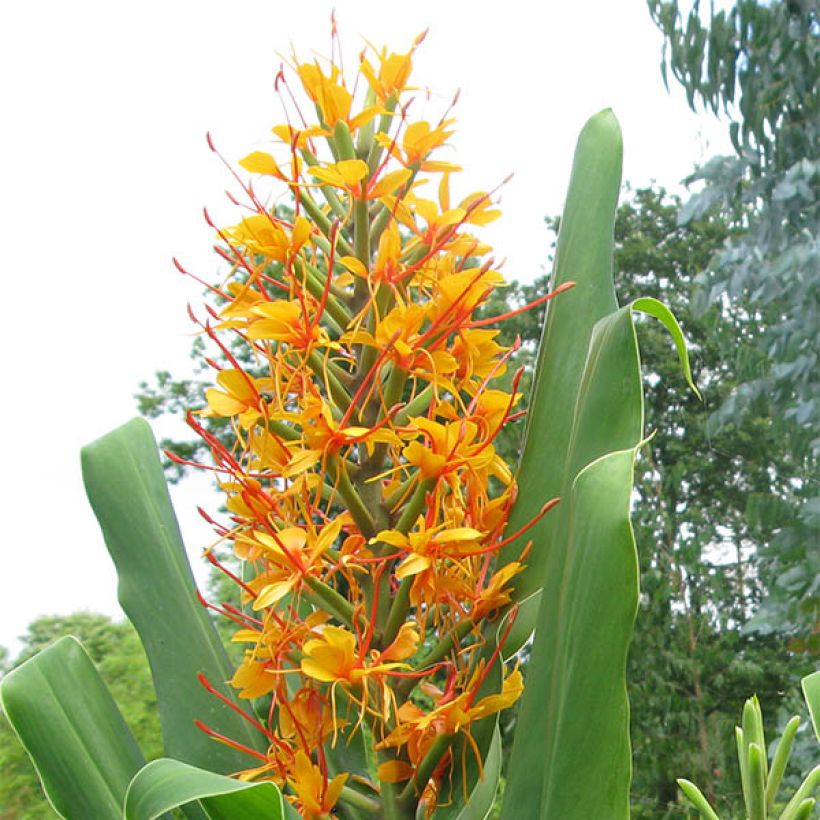

Plant habit
Flowering
Foliage
Botanical data
Hedychium
coccineum
Tara
Zingiberaceae
Scarlet Ginger Lily, Orange Bottlebrush Ginger
Cultivar or hybrid
Other Hedychium
Planting and care
Hedychiums are known as non-hardy plants due to their poor cold resistance. Hedychium 'Tara' is one of the hardiest varieties, capable of withstanding cold temperatures of around -16°C (3.2°F) under a thick protective mulch. We have left the stumps in the ground for about 9 to 10 years and none have died so far. As soon as the first frost hits, we cut back the foliage to the ground and then mulch the stumps with a thick layer of dead leaves. This has always been sufficient so far. Alternatively, you can dig up the stump and treat it like cannas. Choose a warm and sunny location, sheltered from strong winds. In partial shade, Hedychium tends to grow taller. The soil should remain moist throughout the growing season. A rich, deep, and well-drained soil is ideal. Growing in large containers is also possible. In this case, the plant should be stored frost-free in a bright, unheated room during winter. Watering should be reduced in winter and increased from spring to summer.
Stumps are only shipped in clumps from March to May.
Planting period
Intended location
Care
-
, onOrder confirmed
Reply from on Promesse de fleurs
Bulbs to grow in pots
Haven't found what you were looking for?
Hardiness is the lowest winter temperature a plant can endure without suffering serious damage or even dying. However, hardiness is affected by location (a sheltered area, such as a patio), protection (winter cover) and soil type (hardiness is improved by well-drained soil).

Photo Sharing Terms & Conditions
In order to encourage gardeners to interact and share their experiences, Promesse de fleurs offers various media enabling content to be uploaded onto its Site - in particular via the ‘Photo sharing’ module.
The User agrees to refrain from:
- Posting any content that is illegal, prejudicial, insulting, racist, inciteful to hatred, revisionist, contrary to public decency, that infringes on privacy or on the privacy rights of third parties, in particular the publicity rights of persons and goods, intellectual property rights, or the right to privacy.
- Submitting content on behalf of a third party;
- Impersonate the identity of a third party and/or publish any personal information about a third party;
In general, the User undertakes to refrain from any unethical behaviour.
All Content (in particular text, comments, files, images, photos, videos, creative works, etc.), which may be subject to property or intellectual property rights, image or other private rights, shall remain the property of the User, subject to the limited rights granted by the terms of the licence granted by Promesse de fleurs as stated below. Users are at liberty to publish or not to publish such Content on the Site, notably via the ‘Photo Sharing’ facility, and accept that this Content shall be made public and freely accessible, notably on the Internet.
Users further acknowledge, undertake to have ,and guarantee that they hold all necessary rights and permissions to publish such material on the Site, in particular with regard to the legislation in force pertaining to any privacy, property, intellectual property, image, or contractual rights, or rights of any other nature. By publishing such Content on the Site, Users acknowledge accepting full liability as publishers of the Content within the meaning of the law, and grant Promesse de fleurs, free of charge, an inclusive, worldwide licence for the said Content for the entire duration of its publication, including all reproduction, representation, up/downloading, displaying, performing, transmission, and storage rights.
Users also grant permission for their name to be linked to the Content and accept that this link may not always be made available.
By engaging in posting material, Users consent to their Content becoming automatically accessible on the Internet, in particular on other sites and/or blogs and/or web pages of the Promesse de fleurs site, including in particular social pages and the Promesse de fleurs catalogue.
Users may secure the removal of entrusted content free of charge by issuing a simple request via our contact form.
The flowering period indicated on our website applies to countries and regions located in USDA zone 8 (France, the United Kingdom, Ireland, the Netherlands, etc.)
It will vary according to where you live:
- In zones 9 to 10 (Italy, Spain, Greece, etc.), flowering will occur about 2 to 4 weeks earlier.
- In zones 6 to 7 (Germany, Poland, Slovenia, and lower mountainous regions), flowering will be delayed by 2 to 3 weeks.
- In zone 5 (Central Europe, Scandinavia), blooming will be delayed by 3 to 5 weeks.
In temperate climates, pruning of spring-flowering shrubs (forsythia, spireas, etc.) should be done just after flowering.
Pruning of summer-flowering shrubs (Indian Lilac, Perovskia, etc.) can be done in winter or spring.
In cold regions as well as with frost-sensitive plants, avoid pruning too early when severe frosts may still occur.
The planting period indicated on our website applies to countries and regions located in USDA zone 8 (France, United Kingdom, Ireland, Netherlands).
It will vary according to where you live:
- In Mediterranean zones (Marseille, Madrid, Milan, etc.), autumn and winter are the best planting periods.
- In continental zones (Strasbourg, Munich, Vienna, etc.), delay planting by 2 to 3 weeks in spring and bring it forward by 2 to 4 weeks in autumn.
- In mountainous regions (the Alps, Pyrenees, Carpathians, etc.), it is best to plant in late spring (May-June) or late summer (August-September).
The harvesting period indicated on our website applies to countries and regions in USDA zone 8 (France, England, Ireland, the Netherlands).
In colder areas (Scandinavia, Poland, Austria...) fruit and vegetable harvests are likely to be delayed by 3-4 weeks.
In warmer areas (Italy, Spain, Greece, etc.), harvesting will probably take place earlier, depending on weather conditions.
The sowing periods indicated on our website apply to countries and regions within USDA Zone 8 (France, UK, Ireland, Netherlands).
In colder areas (Scandinavia, Poland, Austria...), delay any outdoor sowing by 3-4 weeks, or sow under glass.
In warmer climes (Italy, Spain, Greece, etc.), bring outdoor sowing forward by a few weeks.

































